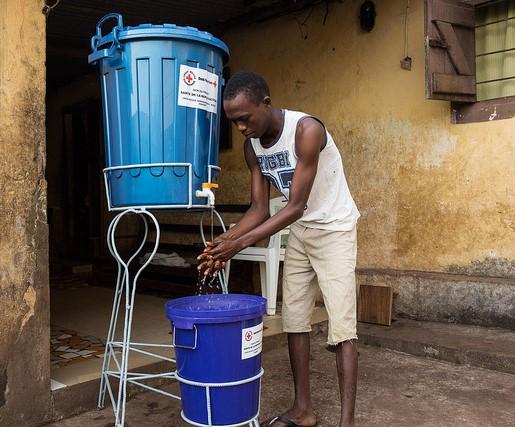One new Ebola infection has been confirmed in the Democratic Republic of the Congo's (DRC's) latest outbreak, as a top World Health Organization (WHO) official warned that the next 7 to 10 days are critical for containing the outbreak to a relatively accessible security area.
In other outbreak developments, the country's health officials decided not to postpone the Sep 3 start of the school year in the outbreak-affected area.
On Twitter yesterday, Peter Salama, MD, the WHO's director-general of emergency preparedness and response, said the majority of new cases are from known contact lists and most are still confined to an area within 20 kilometers (km) to 30 km of the outbreak's epicenter. However, if responders can't turn the outbreak around over the next 7 to 10 days, the risk of the disease spreading to more dangerous conflict-ridden areas becomes greater, posing more difficult challenges for health teams.
Salama also noted that the percentage of contacts that are being followed daily ranged from 71% to 97% in the last week, a measure that's improving as response teams engage communities to gain access. He said that, of 3,714 contacts that have been registered, 1,219 have completed follow-up.
Another promising sign is what appears to be a declining number of cases on the epidemiologic curve, which Salama said could signal that control measures are working. He warned, though, that the information must be interpreted cautiously, given that it takes time to include the latest cases and that the risk of spread remains high. New cases are still being reported daily, he said. "The fight continues."
Outbreak total at 112
The newest confirmed case is a patient from Mandima who is a known contact of a previous case, and the development raises the outbreak total to 112 cases, 84 of them confirmed and 28 classified as probable, according to the latest DRC health ministry update yesterday. Three people recovered from their illnesses, and no new deaths were reported.
Health officials are investigating 18 suspected cases, up from 10 reported on Aug 27. Two of the patients are from the city of Goma, the capital of North Kivu province, near the border with Rwanda.
Extra measures for the start of school
In another development, the ministry said an expert group that met to assess if the start of the school year should be postponed in the affected areas said it was better to open the schools as planned. However, wash basins with chlorinated water will be placed at the entrances of 250 schools in the outbreak areas, and school principals and teachers will receive Ebola disease training.
UNICEF yesterday said more than 82,500 children in the Ebola-affected areas are getting ready to start school and the group is stepping up its education, health, sanitation, and hygiene programs to help the schools protect students and teachers.
Gianfranco Rotigliano, MD, UNICEF's representative in the DRC, said in the statement that every effort must go into ensuring a smooth and safe start for the new school years. "Education is a right for every child and essential for children to develop to their full potential. Especially in times of crisis such as an Ebola outbreak," he added.
Aside from training about 1,750 teachers in installing hand washing units, UNICEF and its partners are also organizing communications activities for parents and local officials and distributing laser thermometers to schools for monitoring children's health.
Latest WHO assessment
In its latest situation report yesterday, the WHO said health officials have investigated alerts in several DRC provinces, as well as in the neighboring countries of Burundi, Central African Republic, Rwanda, and Uganda. So far, Ebola has been ruled out in all instances.
Of 14 confirmed cases reported over the past 7 days, 9 (64%) were among known contacts, an indicator that is steadily improving, the WHO said. "Nonetheless, this result suggests that there are still potential undocumented chains of transmission in the affected communities."
The number of beds in Ebola treatment centers in Mangina and Beni are increasing, and a 50-bed unit to be run by the International Medical Corps is being constructed in Ituri province and is expected to be operational within 2 week.
Though a lot of progress has been made on many fronts, the WHO said there are still some urgent issues, such as deaths from suspected Ebola in the community that heighten the risk of spread, cases occurring outside of known transmission chains, and reluctance and resistance to public health actions by some communities. "The events unfolding in the coming days and weeks will, therefore, be critical in the evolution of the outbreak," the agency said.
See also:
Aug 28 DRC update
Peter Salama Twitter feed
Aug 28 UNICEF statement
Aug 28 WHO situation report


















